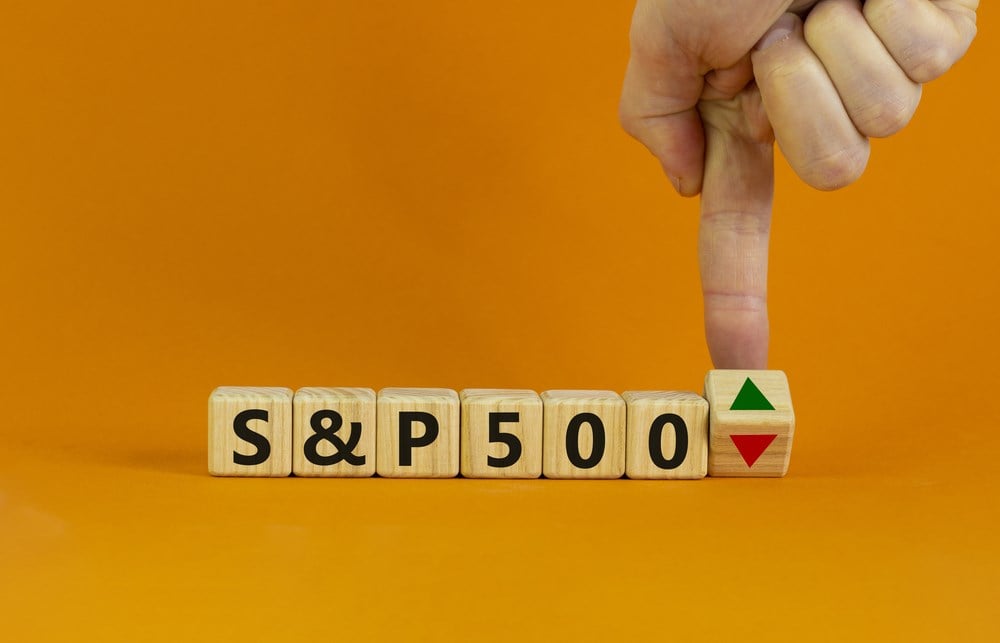
So far, September is living up to its history as being the worst month of the year for stocks.
Four of the five most heavily weighted S&P components, Apple Inc. (NASDAQ: AAPL), Amazon.com Inc. (AMZN: AAPL), Nvidia Corp. (NASDAQ: NVDA) and Alphabet Inc. (NASDAQ: GOOGL), are trading in the red.
Only Microsoft Corp. (NASDAQ: MSFT) had a gain as of the market’s close on September 7, closing the session with a month-to-date increase of 0.66%.
As of September 7, the S&P 500 is down 1.25%. The index closed 2.61% lower in February and 1.25% lower in August.
According to a blog post from the Stock Trader’s Almanac, “September Opens Typically Weak and Closes Weaker,” the S&P 500 has declined on the first trading day of September nine times in the past 15 years.
Then the market goes on to finish lower for the month.
Scarcity of Economic Data in September
One factor that doesn’t help: A scarcity of economic data released in September, relative to other months. It’s not unheard of for upbeat economic news to lead to a broad-market rally.
Jeffrey Hirsch, editor-in-chief of the Stock Trader’s Almanac and author of the blog post, wrote, “With fund managers tending to sell underperforming positions ahead of the end of the third quarter there have been some nasty selloffs near month-end over the years.”
Here’s a look at the September S&P 500 returns over the past 20 years:
- 2022: -9.34%
- 2021: -4.76%
- 2020: -3.92%
- 2019: +1.72%
- 2018: +0.43%
- 2017: +1.93%
- 2016: -0.12%
- 2015: -2.64%
- 2014: -1.55%
- 2013: +2.97%
- 2012: +2.42%
- 2011: -7.18%
- 2010: +8.76%
- 2009: +3.36%
- 2008: -9.08%
As you see, during that time, the S&P finished lower eight times. In his blog post. That steep decline in September 2008 was due to the collapse of Lehman Brothers. The decline in 2011 was due to the U.S. debt ceiling fiasco, and S&P downgrading U.S. debt in August of that year.
In 2022, the tech sector’s 12.18% September decline led the rest of the market lower.
Potential Hurdles to More Gains
This year, headwinds for the S&P for the month, and by extension, the rest of the year, include continued inflation and the related interest-rate hikes, a tepid Chinese economy, ongoing concerns about bank downgrades, and a strong dollar.
When it comes to the individual S&P sectors, the only one up for September, so far, is the Energy Select Sector SPDR Fund (NYSEARCA: XLE). It doesn’t bode well for the broader index if only one sector is showing a positive return.
However, it’s still relatively early in the month. Plenty could happen between now and September 29, the last trading day of the month.
Not all the heavily weighted S&P components are showing losses for September.
For example, Meta Platforms Inc. (NASDAQ: META), Berkshire Hathaway Inc. (NYSE: BRK.B), and UnitedHealth Group Inc. (NYSE: UNH) are among the top non-energy components currently in the black for September.
First-Half Performance a Good Sign?
Some analysts have pointed out that the S&P’s strength in the first seven months of the year may be a good indicator for September’s finish.
It remains to be seen whether AI hype is fading, but it certainly was the catalyst for big gains early in the year, sending Nvidia soaring to the tune of 222% year-to-date.
Nvidia has wobbled since reporting earnings on August 23, despite blowing past estimates. That could be a signal that the broad tech rally is running out of steam. Indeed, the Technology Select Sector SPDR Fund (NYSEARCA: XLK) was down 1.51% in August and is trading 1.84% lower this month.
It’s possible the trend continues, although investors seem to be saying “Show me, don’t tell me,” when it comes to AI.
But another data point, that goes beyond just the month of September: When the S&P closes lower for the year, as it did in 2022, it’s very rare for it to finish to the downside the following year.






